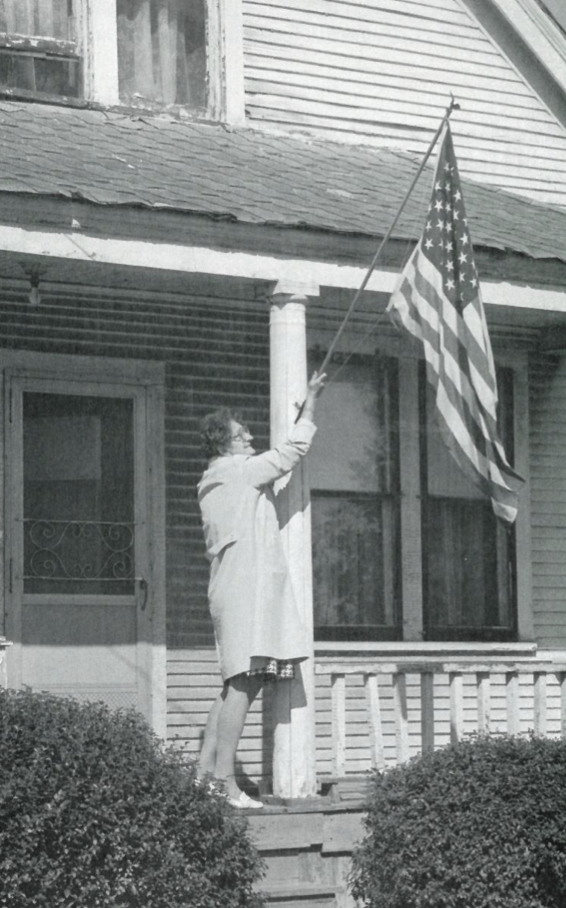
After not voting in several national elections I was forced to admit that my claim to “a position of no position” was pretty much nothing but pretense. I didn’t come to dharma until the middle eighties, but, with no very deliberate intent, I inherited the baby boomer Buddhism of my elders that pervaded the Zen center where I started my practice. The inarticulated presumption was that to vote at all was a vote for samsara, that voting endorsed pathetic delusions of liberty, and furthermore, that those who voted flaunted their hopeless attachment to worldly concerns—not what Zen students most want to advertise about themselves.
The first election in which I was old enough to vote was Bush vs. Dukakis in 1988. During the campaign I would just roll my eyes with the best of them—that is, the senior monastics—sighing with profound despair at the sorry state of unenlightened sentient activity. On election night, there were people living at the center, including some of the monks, who made popcorn and watched the news on the sangha house TV. When I went home for Thanksgiving a couple of weeks later, I proudly informed my family that I couldn’t even be bothered to watch the election returns. To which my father, a passionate advocate for the American way, and who beams with pleasure when unfurling the flag on national holidays, put his fork down, stopped chewing his turkey, and with a look of sad-eyed sincerity, said, “You know something honey, I couldn’t either.”
His sense of failure at being unable to rally to this American moment, so unmistakable in his voice, was such a rare admission of defeat that I said nothing to disturb his offer of camaraderie in commiseration.
Following my residence at a Zen center, my next engagement with dharma studies took place in the Bay Area. Overnight, I found myself thrown in with students for whom political apathy was the ultimate pledge to the ignoble path. Here, the eyes rolled if the concept of “detachment” was used to question social activism. Yet I thought of the most serene Buddha faces I knew, say, the stone Buddhas of Sri Lanka, Buddhas whose faces emanated such mountainous stability and calm—a tranquility that seemed to pervade the universe—that it was impossible to imagine that under that implacable facade lay a flicker of attraction or aversion: I like elephants better than donkeys; I feel a bit pulled toward the Democrat’s ideals of caring for the unblessed; no, wait, I am swaying toward the Republicans’ insistence on self-reliance which helps create dignity and can build confidence—and the attainment of enlightenment is impossible without confidence.
But you’re not a Buddha, my friends reminded me over and over again. You live in the world, that’s your playground, and you have to keep your sandbox clean, unpolluted, free of fleas.
In spite of this change in circumstances from a community complacent in its separation from society to a group committed to political action—I held to my views that political engagement does breed an unholy attachment. Whether it helps or hinders the plight of the unblessed, the attachment itself leaves you imprisoned, your horizons diminished, and thwarts your ability to investigate without bias. Whether you support the right to life for fetuses or the freedom of choice for women, you dig in your heels and get stuck. Your ears are stuffed with your own prejudices, preconceptions, and, like the proverbial Zen teacup that is too full to receive one drop of wisdom, your ability to hear the other side is consumed by self-righteousness.
In short, you relinquish your freedom of mind.
If the dilemma is attachment—and not content, not views—then what would a buddha do at the voting booth? Contained, clear as a bell, generous and unfettered by media manipulation, assessing the precepts according to circumstance (if the Mahayana prevails), coolly, logically, dispassionately trying to figure out which candidate might do the most good, might bring about less suffering . . .
So now, I am driving around Oregon without a bumper sticker in support of anything or anyone—not even a “Free Tibet” logo. I am pretending that I am the Buddha. I am not attached to anything. And I am not an omniscient buddha. I am of the variety that can just try to perceive freely, without passion stirring up any mental fumes, and I am trying to make my best move. I am in the booth. The curtain is closed behind me. The lever is waiting. I am not attached. But I can’t do anything. There is no correct way to assess the situation. Either vote seems to invite suffering and despair in amounts too indistinct to warrant a move in one direction or the other.
The fantasy of imagining being Buddha at the polls is causing constrictions throughout my body. I am feeling more and more paralyzed. I blame my indecision on the milquetoast ambiguity of the candidates and the imprecision of their platforms. Then I am judging: W seems too dumb, while insincerity seems to strangle the life force out of Gore like some belligerent form of kudzu. Now I am judging myself judging, bemoaning my weak character, my inability to be a buddha even in fantasyland. It is time to leave the booth.
The line behind me is getting longer. My robes look funny, visible below the curtain. I need to get off this freeway. I need to return to the forest. I need to meditate, to clear my head, regain my composure.
Mostly, all I know is this: there are important questions to pursue in this life. And who to vote for is not among them.
Thank you for subscribing to Tricycle! As a nonprofit, we depend on readers like you to keep Buddhist teachings and practices widely available.